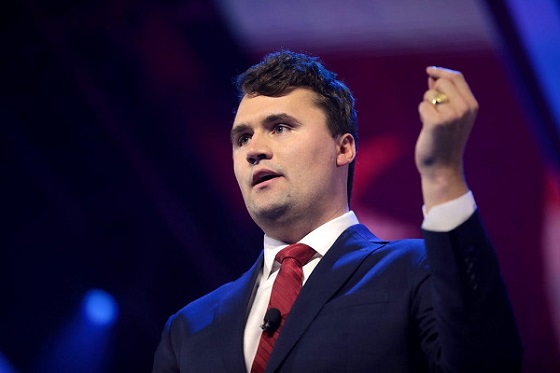National
Canada’s 2nd ‘Million Person March for Children’ against gender ideology to take place Friday

From LifeSiteNews
The second ‘Million Person March for Children,’ in which pro-family citizens will gather across the country in protest of gender ideology being pushed on kids in schools, is set to take place this Friday following the success of last year’s inaugural event.
After a successful and well-attended event last year, the second annual Million Person March for Children is set to take place coast to coast this Friday, with organizer’s hoping to see thousands of Canadians join to “safeguard children” from “sexual indoctrination” and stand in favor of parental rights.
“We refuse to stand by while the Government and School system allow sexually explicit content and gender ideology to be distributed in our classrooms,” says Hands Off Our Kids, the group organizing the nationwide event.
“This movement embraces principles of human dignity, freedom of thought, and religious freedoms. Our mission includes safeguarding children’s rights, nurturing their growth in a safe environment, and promoting critical thinking through quality education.”
On September 20, most cities in Canada will see march participants take to the streets in peaceful solidarity starting at 8:00 a.m. local time.
The event’s main organizer is Muslim pro-family activist Kamel El-Cheikh, whose organization Hands Off Our Kids, is putting on the event. A full list of locations is available on the organization’s website.
While the movement was founded by El-Cheikh, last year’s event included a large number of Christians as well.
Michael Clark, who serves as the Executive Director for the David and Goliath Program of the Christian Impact Network, told LifeSiteNews that it “identified the Million Man March as a good cause to amplify and support.”
Clark told LifeSiteNews that his organization “is a group of Christian professionals that help behind the scenes and give horsepower to good causes.”
As for Hands Off Our Kids, it says the goal of the march is to raise awareness for the “well-being of children and reinforcing a just, inclusive, and rights-respecting society.”
“This collective effort holds current governments worldwide accountable and underscores their responsibilities towards the most vulnerable members of our society,” says the group.
“We are fighting for our children to be able to learn in a healthy school system that is free from biases and indoctrination.”
Hands Off Our Kids works together with other pro-family groups, including Campaign Life Coalition, the Mama Bears, Veterans for Freedom, and, just recently, Canadians for Truth.
The group’s main message, as per its website, is that “parents are responsible for their children’s moral and upbringing, not politicians and that is why it is our duty to speak up and have our voices heard when we say, ‘HANDS OFF OUR KIDS.’”
“In essence, the #1MILLIONMARCH4CHILDREN is the protest that celebrates our differences while serving as a powerful expression of collective concern, fostering dialogue, positive change, and the preservation of core human values.”
Friday’s Million Person March will be the group’s second major protest of the year. As reported by LifeSiteNews, this past June saw teachers and staff at an elementary school in Ottawa, Ontario, baffled when 591 out of 738 students were missing from the school’s LGBT “pride” flag raising ceremony.
As reported by LifeSiteNews, LGBT indoctrination targeting kids has been on the rise in Canada and worldwide.
For example, LifeSiteNews recently reported on how a school board located in a predominantly conservative Christian part of Manitoba will now have a governmental “adviser” oversee its activities after a pro-“diversity” parents group complained it was not being “inclusive” enough because some of its trustees participated in last year’s 1 Million March 4 Children rally.
Business
PBO report projects soaring deficit and debt interest charges

The Canadian Taxpayers Federation is calling on Prime Minister Mark Carney to cut spending following today’s Parliamentary Budget Officer report forecasting the deficit to “increase sharply.”
“The PBO report should be a five-alarm siren to end the government’s debt-fueled spending spree,” said Franco Terrazzano, CTF Federal Director. “Carney must change course and cut spending because taxpayers can’t afford to pay more than $1 billion every week to cover the government’s debt interest charges.”
The PBO’s Economic and Fiscal Outlook projects this year’s “deficit to increase sharply to $68.5 billion.”
Carney’s annual borrowing will add about $255 billion to the debt over four years, according to today’s PBO report. For comparison, former prime minister Justin Trudeau planned on increasing the debt by $131 billion over those years, according to the most recent Fall Economic Statement.
Debt interest charges will cost taxpayers $55.3 billion this year, according to the PBO. That means the federal government will waste more money paying interest on the debt than it sends to the provinces in health-care transfers ($54.7 billion). Debt interest charges will cost taxpayers $82.4 billion in 2030.
“The federal debt-to-GDP ratio is projected to increase from 41.7 per cent in 2024-25, rising above 43 per cent over the medium term,” according to the PBO.
The Carney government’s spending is projected to increase by billions of dollars every year, according to the PBO.
“Carney sold Canadians on the idea he wasn’t like Trudeau and when it comes to the debt here’s the truth: Carney plans to borrow billions of dollars more than Trudeau,” Terrazzano said. “After a decade of out-of-control spending, Carney must make government more affordable and cut spending.”
The Carney government will release its first budget on Nov. 4.
Business
Canada’s Future May Lie In Continental Integration

From the Frontier Centre for Public Policy
Only bold economic, regulatory and security integration with the U.S. can rescue Canada from decline and counter China’s influence
A unified market with the U.S. could deliver opportunity, stability and security that Canada can’t achieve alone
With the Canadian middle class shrinking, trade tensions rising, and young Canadians eyeing the exits, Kevin O’Leary’s call for a European-style economic union between Canada and the U.S. might be the bold move Canada needs.
Late last December, the Canadian businessman affectionately known as Mr. Wonderful, reignited a long-simmering debate over “continentalism,” the idea that Canada and the United States should pursue deeper economic, political and social integration—perhaps even a full union.
Unluckily for O’Leary, his pitch landed with the grace of a lead balloon. Incoming president Donald Trump promptly declared that Canada should just become the 51st state. So much for subtle diplomacy.
Trump’s blunt response deflated any serious talk of continentalism—and the idea was soon buried under growing political friction between Ottawa and Washington.
Continentalism has a long and surprisingly respectable pedigree in Canada. After Confederation in 1867, British-born Canadian intellectual Goldwin Smith—then one of the country’s most prominent thinkers—emerged as a champion of North American integration. His 1891 book Canada and the Canadian Question laid out a detailed case for union with the U.S. Opposing camps favoured clinging to the British Empire or forging total Canadian independence, neither of which answered the structural weaknesses of a relatively small, export-dependent economy trying to compete on a global scale.
Today, the rationale for a Can-Am union is arguably stronger than ever. A truly unified North American market—underpinned by shared rules, a common currency and harmonized supply chains—would reduce transaction costs, attract capital and boost investor confidence. Regulatory coherence would also drive trade and secure access to critical materials without relying on unstable suppliers or hostile regimes.
Beyond the economics, labour mobility could ease shortages, fill demographic gaps and open new doors for ambitious workers. For many young Canadians, continental freedom of movement might not just be appealing—it may be essential. The ability to live and work seamlessly across a vast, integrated market could create a new generation of mobile, prosperous professionals less bound by national economic stagnation.
Critics often frame continentalism as capitulation. But in truth, it would require careful negotiation, robust constitutional safeguards and strong protections for Canadian identity. It’s not about assimilation—it’s about adaptation in a changing world. If the European Union can coordinate 27 nations with different languages, histories and political systems, surely two long-time allies sharing a common border and a common language can devise an arrangement that respects sovereignty while fostering opportunity.
Together, Canada and the U.S. represent nearly 389 million people across 19.8 million square kilometres, producing close to $32 trillion in GDP. That’s not a bad bloc to belong to.
A continental order would also strengthen the geopolitical clout and security of both nations. A unified democratic bloc based on free enterprise could rival China, Russia and other authoritarian players. With a southern border wall already up, North American security could be reinforced with joint enforcement against illegal migration and drug smuggling. Shared intelligence and military coordination would enhance defence in a volatile multipolar world. This kind of integration could also counter rising cyber threats, energy insecurity and supply chain instability that neither country can fully address alone.
An EU-style North American council or commission could allow for cooperative decision-making without erasing national sovereignty. Unlike outright federation, this approach would preserve Canada’s independent institutions while offering a forum for joint policy development, dispute resolution and regional economic planning. If Germany, France, Italy, Spain and Portugal can make it work—despite centuries of war and deep cultural divisions—surely we can too.
Of course, resistance is alive and well.
Powerful interest groups recoil at anything that threatens their turf. Big Labour warns of wage erosion in a common job market. Canadian politicians fear cultural absorption. American lawmakers don’t like sharing the steering wheel. Even among the public, knee-jerk nationalism often drowns out sober economic analysis.
Still, reality is making continentalism harder to ignore. Ambitious Canadians trapped in a declining middle class are looking for exits—and for some, continental mobility may be the only way out. Many are already voting with their feet. In 2024 alone, roughly 106,000 Canadians left the country, one of the biggest outbound waves in recent memory.
Despite Ottawa’s steady stream of anti-American messaging, the U.S. remains destination No. 1. More than a million Canadians now call it home. And that number is likely to grow as Canadian living costs rise and public services strain under demographic and fiscal pressure.
As Harold Wilson once said: “He who rejects change is the architect of decay. The only human institution which rejects progress is the cemetery.”
Continentalism may not be the only answer—but refusing to even ask the question is a luxury we can no longer afford.
William Brooks is a senior fellow at the Frontier Centre for Public Policy. He writes on cultural identity, democracy and Canadian institutions.
-

 Business2 days ago
Business2 days agoThe Leaked Conversation at the heart of the federal Gun Buyback Boondoggle
-

 Business2 days ago
Business2 days agoPublic Safety Minister admits gun buyback program is waste of money and resources – 742,000,000 projected cost to taxpayers
-

 Alberta17 hours ago
Alberta17 hours agoAlberta pro-lifers demand protections for infants born alive after failed abortions
-

 Business24 hours ago
Business24 hours agoWEF has a plan to overhaul the global financial system by monetizing nature
-

 Crime24 hours ago
Crime24 hours ago1 dead, 2 injured after shooting at Dallas ICE facility
-

 Daily Caller22 hours ago
Daily Caller22 hours agoTrump’s Ultimatum To Europe On Russian Oil
-

 Business2 days ago
Business2 days agoGoogle Admits Biden White House Pressured Content Removal, Promises to Restore Banned YouTube Accounts
-

 Autism1 day ago
Autism1 day agoSecretary Kennedy’s Key Remark at Autism Press Conference







